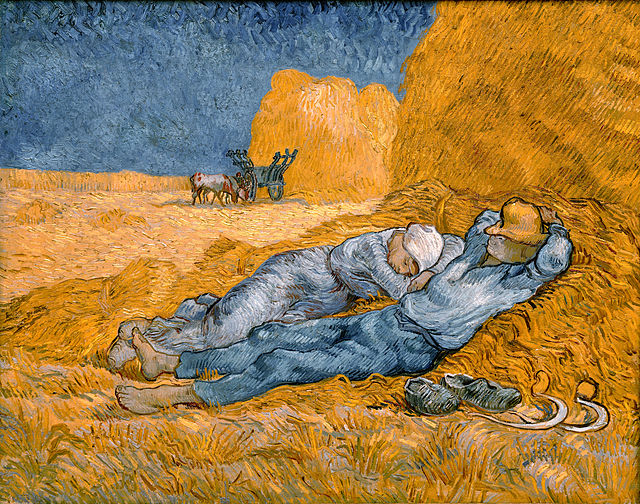After a twice delayed release because of Covid-19, 2nd September will finally see the German release of one of last year’s best films. “Ein Bißchen Bleiben Wir Noch” (English title: “Where No-One Knows US”) is based on Monika Helfer’s 1994 novel “Oskar and Lilli”, but by making the kids refugees from Chechenya, Iranian -Austrian director Arash T. Riahi has added an extra degree of political urgency.
The film starts in an apartment block in Vienna. Police storm a flat to find the 9-year old Oskar and 13-year old Lilli on their own. Although their mother soon returns, the police are set to take them away anyway. So the mother slips into the bathroom where she slits her wrists while her two kids escape to the roof. They can only hide for so long, though, and while their mother is sent to a psychiatric hospital, the kids are fostered out to two different families, who live an hour away from each other. Lilli is sent to live with the lonely Rut and her deadbeat photographer boyfriend Georg. Oskar, on the other hand, finds himself with two smug vegetarian teachers, who he only ever refers to as “die Lehrerin” und “der Lehrer”.
Der Lehrer has a beard and plays a makeshift accordion at inappropriate moments. Die Lehrerin sneaks pieces of meat when she’s at the supermarket and thinks no-one’s watching. They also have a screaming child and an ageing mother with Parkinson’s disease (who, as Oskar says, “dances without music”). Oskar strikes a bond with the old woman, somehow aware that they are both trophies – there to display the liberal generosity of a couple who have no obvious interest in their thoughts or feelings.
Oskar, the eternal optimist, makes smiley faces out of everything he sees – from food to furniture. He regularly writes his mother letters, which are never answered as he doesn’t know where to send them. He believes that she’ll be waiting for them in their old flat, and when Lilli and he manage to briefly reunite, they twice try to return home. The first time, they find a blood-soaked bathroom, which the police have not got round to cleaning. The second, the locks have been changed and someone else is living there.
Lilli is not as optimistic as her brother. She develops a skin disorder and – following nightmares of being driven out of Chechenya – starts wetting the bed. Meanwhile, the photographer boyfriend thinks that Lilli is cramping his style, and makes a deal with her. He’ll try to track down her mother, so that she’ll be out of his hair.
Lilli is almost entirely sullen with one notable exception. On a ride at the Prater Gardens, she receives a message from the photographer saying that he’s found an address for her mother, As she glides through the air arms outstretched, the look on her face is one of unbridled joy. This is a rare moment of pleasure in a heartbreakingly sad film, remiscent of the final scene of Systemsprenger.
Lilli remains petrified when she sees policemen, feeling that any contact with them will result in her deportation. It’s not an unreasonable fear. And while Oskar is proud that his father is a freedom fighter, Lilli knows that he’s a political prisoner – and possibly dead – which would mean that their return to Chechenya, could be even worse than their current situation.
In a press statement, Riahi explained that
“’Ein bisschen bleiben wir noch’ is not a film about the refugees who are coming to us now, but a film about the future of their children. Children who are growing up in Europe, who master the national language better than their mother tongue, who don’t know their homeland except though stories, but cannot find any space here.”
He goes on
“because of increasingly strong laws, not everyone will be able to stay here. And so it is up to us as a society to draw attention to other possibilities of living together away from the bureaucracy, and to concentrate on the similarities between us and the so-called “foreigners” and not on what divides us.”
“Ein Bißchen bleiben wir noch” is not a film full of hope. How could an authentic film about refugees in a country that doesn’t really want them be any different? Most of the protagonists – including the mothers of both Lilli and Oskar and of Lilli’s Austrian friend – are deeply damaged by an uncaring system, and only their small children are able to offer any support.
Towards the end, Oskar tells his mother that you can buy anything nowadays, which is kind of true, but this only works if you have any money. Yet, despite the general air of hopelessness, the film does manage to show occasional moments of joy, right up to the final scene which threatens to offer us a glimmer of hope before bringing us crashing down for a final time.
Nonetheless, “Ein Bißchen bleiben wir noch” is not a miserable film. This is in part down to the remarkable performances by Leopold Pallua as Oskar and in particular Rosa Zant as Lilli. They bring us into their hopeless world and silently demand our empathy. This means that we leave the film not just appalled at the gross injustices experienced by Oskar, Lilli and many people like them, but also motivated to fight for a better and fairer world.
Where No One Knows Us will be on general release in German cinemas from 2nd September




